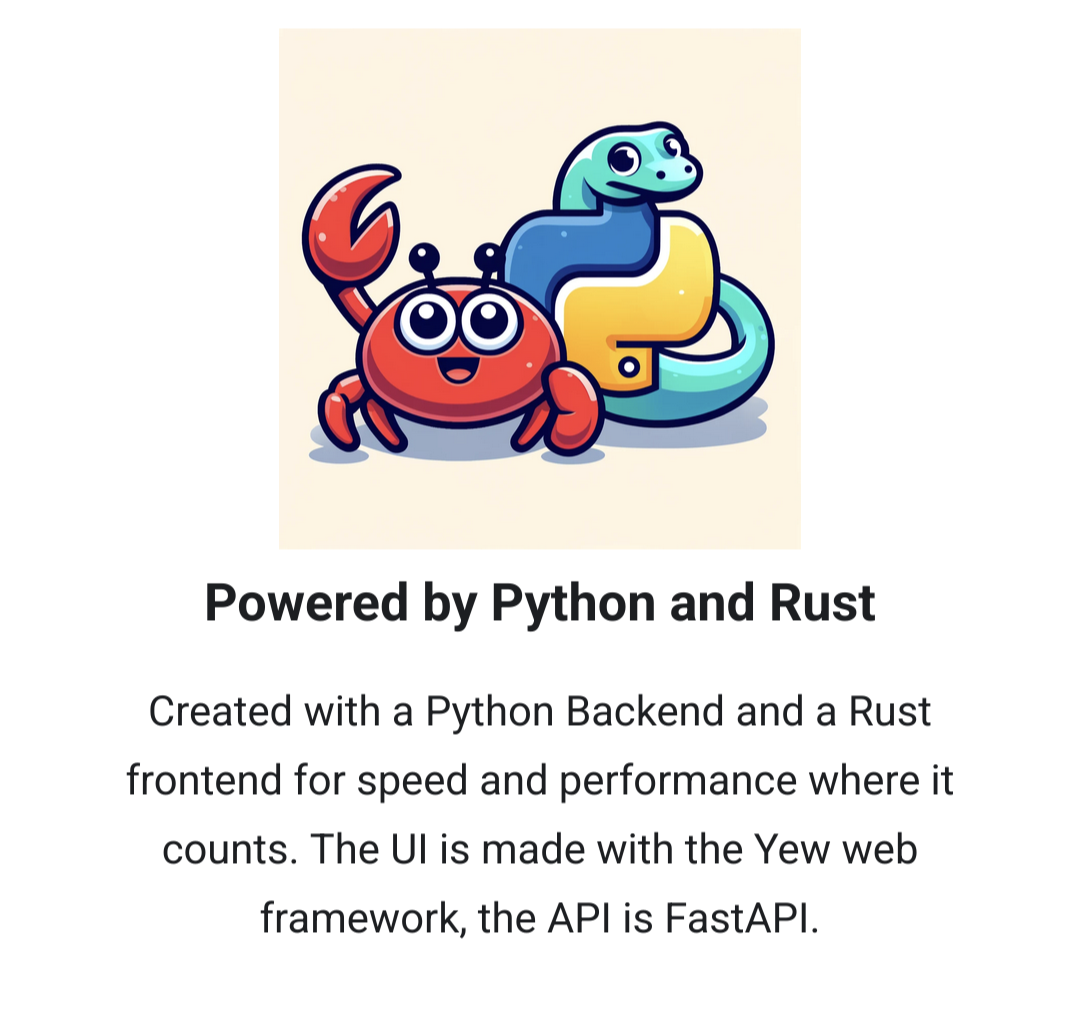- 41 Posts
- 260 Comments
I replaced my tabbyml code assistant this week with ollama+continue.dev. But I’m having issues with speed. I think this is because I switched from code qwen 2.5B (ish) to Deepeek Coder 9B (ish) and I think I’m pushing the limits of my GPU. Maybe I’ll spend today sorting out which models I want to use and which computers I want to use them on so I dont run into this issue (I’ve got ollama on 2 computers with 3 GPUs shared between them, for a total of 24GB VRAM)
Floccus just syncs, so whatever hasnt been synced would just wait in your bookmarks until the server was available.
I’m due to make something with ratatui. I’ve heard wonderful things about it. Cool project OP

 4·10 days ago
4·10 days agoId never heard of trap. This is awesome! Thank you for sharing
When you do finally get into an installation (dual boot or live usb) just remember that this a whole new OS. And things that you thought about how “computers” worked was actually how “windows” worked. I just want to make sure you set expectations, because you could easily frustrate yourself when you start expecting things to behave a certain way.
Hopefully, you learn a lot from this experience. I’m excited for you!

 12·16 days ago
12·16 days agoWhy did you switch from bitwarden?
I use borgbackup to create backups. I point backups to another home computer and borgbase.com. Borg itself is an amazing tool. I think you should learn how it works even if it doesnt end up being the best fit for you.

 4·27 days ago
4·27 days agoStart ny NOT jumping into nixos. Start using home manager on whatever distro you currently use. Then slowly move whatever programs or dots you currently have over to it, uninstall the aur/apt packages as you define them in nix. At first you’ll have a clear goal: emulate your user environment. Once you’ve got your user environment defined, the jump to nixos would be easy (if you even want to) because you can use your home-manager config as the starting point. And depending on how you use your computer, home-manager may end up being most of what you care about.

 4·28 days ago
4·28 days agoWelcome to the NixOS club! Veloren fan here too!

 2·28 days ago
2·28 days agoI’ve got a subset of my files encrypted and backed up using borg. It gets backed up to another computer in my home and then cloud storage via borgbase.com.
Thanks for sharing your brewing method. I had never considered this, and based on the last post, a lot of people don’t either. I’m glad you got it tasting the way you like!

 13·1 month ago
13·1 month agoHave you tried this?
If your typically coffee disolves in hot milk, then you might be used to instant coffee. What you’ve shown here is a bag of coffee beans and a bag of ground coffee beans. This requires a different method than with instant coffee.
The intent is to capture the parsing errors within a function, so the response could be capture in a single if let or match or is_okay condition.
If you use functions that return result (like your main, but with a different error) you could remove some of the if let blocks with
let num = part2.to_string().parse::()?;. That might obfuscate some of the conditionals so the statements are one after another.Cool project, let us know about the next iteration.
I use my exist credit card company, now. I still get my x% cash back. And the credit card company arent the people Im trying to hide from in this case. Thanks for letting me know.

 6·1 month ago
6·1 month agoAnd how do you like yew? Long ago I used seed.rs, which was more like ELM than react. But I think that project has since gone unmaintained. I also tried yew when I think they were in the middle of a huge API transition. Do you think its easier to write in yew than it would be in react/vue/svelte?

 12·1 month ago
12·1 month agoCursed tech stack and image. Project looks cool. Can you elaborate more on why you used rust for front end and python for backend? I would assume rust would have been more applicable for back end work. Then again, Im not familiar with fastAPI.


 7·1 month ago
7·1 month agoThere’s so many useful methods for iterators its worth reading the doc page to familiarize yourself. Its wicked powerful: https://doc.rust-lang.org/std/iter/trait.Iterator.html












Vim to edit markdown files. I use syncthing to sync between phone and other devices. I edit using markor on android.
I’ve tried other software, but usually discover that vim keybinds dont exist (even as a plugin) or opening as plain old markdown isnt available, so I give up and try the next one. I’ve finally accepted that for me, vim and markdown is my endgame note taking solution.